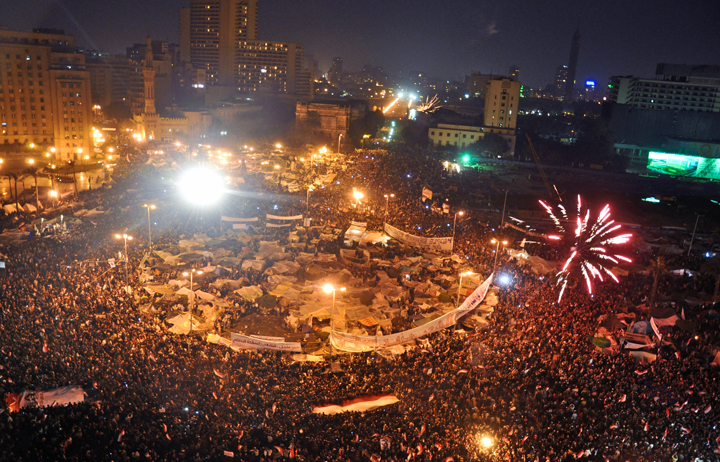Egypt's Mexican-Style Coup
 As I write this, there is less than an hour left to the end of the Egyptian Army’s 48-hour ultimatum that unless an agreement can be reached between the President Mohammed Morsi and opposition forces, it will intervene and impose a “roadmap” for a new government. Or, in plain language, it will stage a coup.
As I write this, there is less than an hour left to the end of the Egyptian Army’s 48-hour ultimatum that unless an agreement can be reached between the President Mohammed Morsi and opposition forces, it will intervene and impose a “roadmap” for a new government. Or, in plain language, it will stage a coup.
Such an agreement has not been forthcoming. The opposition, seeing that the government will fall if they don’t enter into dialogue with it, has steadfastly refused to settle for anything except its total overthrow, which, through their reticence, it would presumably precipitate.
The fact that President Morsi would be unpopular should not be surprising—he was elected by a narrow 3 percent margin in a run-off that barely attracted half of Egypt’s eligible voters, after qualifying with 24 percent in a first round that attracted even less (meaning that a mere 11 percent of eligible voters had any particular desire to see him as president in the first place)—but that he is facing overthrow after barely a year after being sworn comes as a shock.
Rarely are coups announced in advance; indeed, they would seem antithetical to the entire purpose of being able to swiftly seize power. A pre-announced coup would seem to allow a government to act against the plotters, but Morsi’s support seems to have evaporated rather suddenly. The Oxford English Dictionary defines a coup as the “sudden, violent, and illegal seizure of power from a government,” but this coup seems neither hardly sudden nor particularly violent.
Unusual as it seems, there is a precedent in such declarations in the Latin American and Iberian tradition of the pronunciamento, a forum of coup d’etat hitherto peculiar to those parts of the world. Traditonally, pronunciamento would not begin by a swift and sudden seizure of power, but rather a public declaration of opposition to the government by the military, followed by a “waiting period” where the plotters would wait for support to materialize for the government’s overthrow.
Such interventions were at their most formalized in Mexico, where they were usually accompanied by written declarations of intent and plans for governance, which were often very detailed (it is noted that had the Declaration of Independence been signed in Mexico, it would have been called the Plan de Philadelphia).
In Egypt, the army leaked its “road map” to the paper of record Al-Ahram, which laid out its plan to abrogate the constitution; promulgate a new constitution written by academics, reviewed by the religious scholars of the Al-Azhar Imamate, and approved by public referendum; impose a presidential triumvirate headed by the military (certainly represented by SCAF Chairman Khalil al-Sisi), the Chief Justice Maher El-Beheiry, and a member of the opposition (one sees Mohammed ElBaradei, who has acted as the spokesman for the opposition, as the natural choice); hold new presidential and parliamentary elections; and, above all, oust President Morsi. Such are the contents of the Plan de Cairo.
Despite the aura of popular support around these events, the final action will have to be by military action, and despite the calls of liberals for democracy, the opposition seems more than willing to let the military do the dirty work. It is worth noting that there were no less than one hundred such planes in Mexico’s history, although only around a dozen were successfully carried out. It is worth Egypt’s notice of what such precedent entails.
